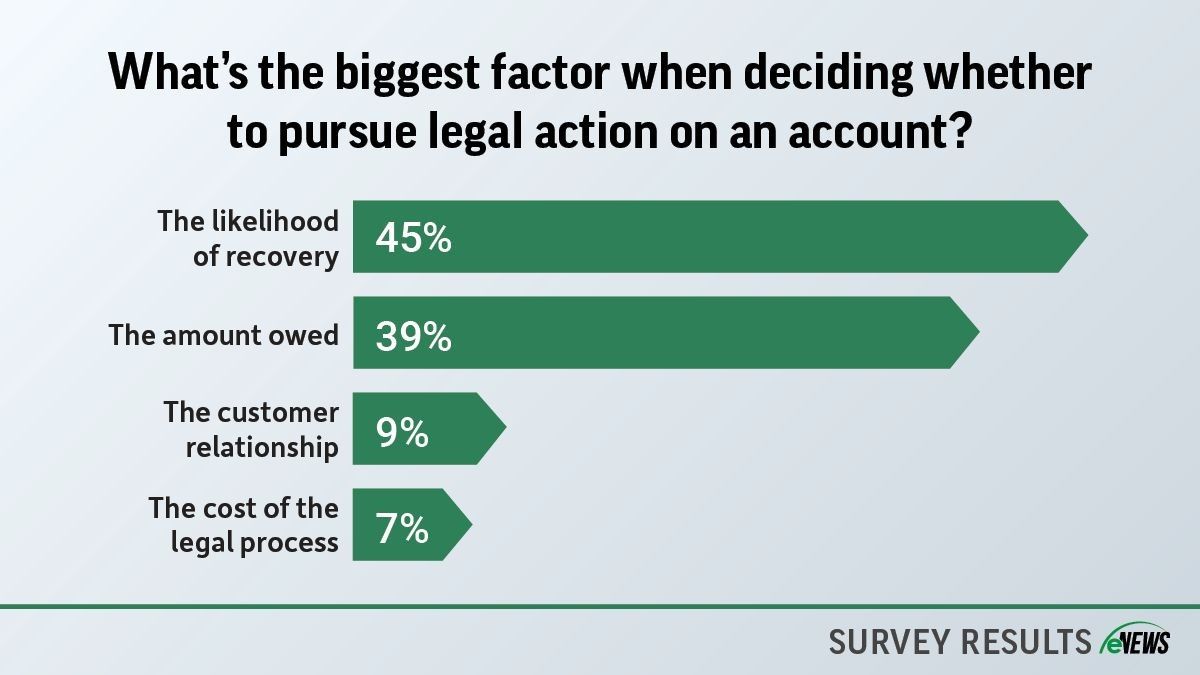Business Practices, eNews
Overcome chronic credit task procrastination
Timeliness is essential in the credit management profession, as delayed actions can result in missed sales opportunities, financial losses and strained customer relationships.

Timeliness is essential in the credit management profession, as delayed actions can result in missed sales opportunities, financial losses and strained customer relationships.
Why it matters: Procrastination can lead to overlooked deadlines, delayed credit approvals and increased risk exposure.
When asked, credit managers said the tasks they find themselves procrastinating the most are credit reviews of good-paying customers, new customer onboarding and difficult collection calls.
By the numbers: A Jobera report revealed that 88% of the working population procrastinate for at least one hour per day, while 20% of adults are chronic procrastinators.
But what makes people procrastinate? Procrastination is driven by a variety of thoughts and habits. People procrastinate tasks they believe will be unenjoyable or fear they won’t perform well, according to Psychology Today. “People may also procrastinate when they are confused by the complexity of a task (such as filing one’s taxes) or when they’re overly distracted or fatigued,” the article reads.
Heavy workloads force credit managers to prioritize some tasks over others. For example, prioritizing the management of existing customers may extend the turnaround time for onboarding new customers. “If I put anything off, it’s reviewing new credit applications,” Amy Cook, CCE, credit manager at McNaughton-McKay Electric Company (Madison Heights, MI), said during a Credit Leaders Thought Leadership Forum call. “I used to pride myself in a 48-hour turnaround time for onboarding new customers. But now, I’m at a two-week average.”
Tasks that aren’t as urgent make for increased procrastination at the workplace. Conducting account reviews, especially for customers with a good payment history, may not feel immediately urgent. For Kevin Stinner, CCE, CCRA, credit manager at J.R. Simplot Company (Loveland, CO), it takes time to review open accounts that aren’t past-due. “You need to request new trade references, National Trade Credit Reports (NTCR) and research financial information,” he said.
Preventing procrastination can be challenging but it is crucial for workplace efficiency and productivity. Here are some tips to help you stop procrastinating and start doing:
#1 Prioritize Tasks
Credit professionals can reduce stress and boost productivity by prioritizing urgent tasks, leaving simpler, enjoyable ones for the end of the day. For example, Deborah Davis, CCE, CICP, finance systems analyst at Tektronix, Inc. (Beaverton, OR), says that getting work done early has helped her procrastinate less. “Do it first thing in the morning so you can have the rest of the day to look forward to,” she said.
#2 Set Tighter Deadlines
Professionals often delay tasks due to distractions. Setting deadlines is key as it adds pressure to complete tasks promptly. “Projects with long-range due dates tend to be the ones that you put off because you get distracted by more urgent matters,” said George Demakis, credit manager at Scafco Corporation (Spokane, WA). “There is nothing like being put under pressure to deliver on a due date to overcome procrastination.”
#3 Delegate Tasks Strategically
Delegating tasks to your team not only lessens your workload but promotes cooperation. “Focusing on someone else’s strengths can help share responsibility, or at least, having them develop those strengths to do those tasks helps too,” said Sheryl Rasmusson, CCE, president at Kilgore TEC Products Inc. (Spokane, WA).
#4 Plan Ahead
Planning which tasks will be completed and when will help you accomplish them much faster. By preparing in advance, you can anticipate potential problems and develop solutions before they occur.
Set up routine meetings with clear objectives and tasks to be completed. Rasmusson conducts weekly staff meetings to run through and delegate tasks. “I work at developing my team so that anyone can take on tasks that maybe someone doesn’t have time to accomplish that week,” she said. “If there’s more to do the following week, we dive into getting it accomplished collectively, which helps develop the team further.”
#5 Take Breaks
Taking breaks not only prevents burnout, but it gives you the ability to regain the energy to complete any task. Short breaks can help people perform at their best. William Helton, Ph.D., professor of human factors and applied cognition at George Mason University (Fairfax, VA), and colleagues showed that short breaks can improve attention, according to the American Psychological Association (APA).
#6 Reward Yourself
Positive reinforcement, like rewarding yourself with early finishes or treats, can deter procrastination. This incentive encourages quicker, more enthusiastic task completion.
Yes, but: Studies show that in certain cases, negative stimuli are more powerful and effective than positive ones. “By pulling the two levers of positive and negative reinforcement, you may be able to tap into your brain’s reward system,” reads a Fast Company article. “If you’re only giving yourself positive incentives, then failure to perform a certain action merely means not getting the reward. But what a punishment does is introduce a consequence.”
To put it into practice, every time you fail, discipline yourself by reducing the time of your next break.
The bottom line: To overcome procrastination, you must first understand its root cause. As a credit manager, the stakes are high to complete responsibilities on time.





